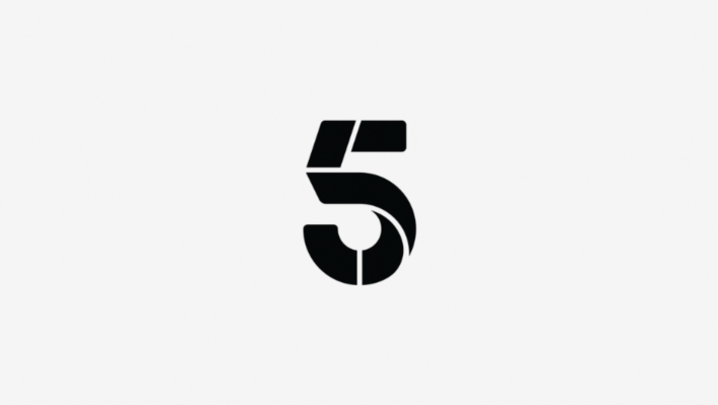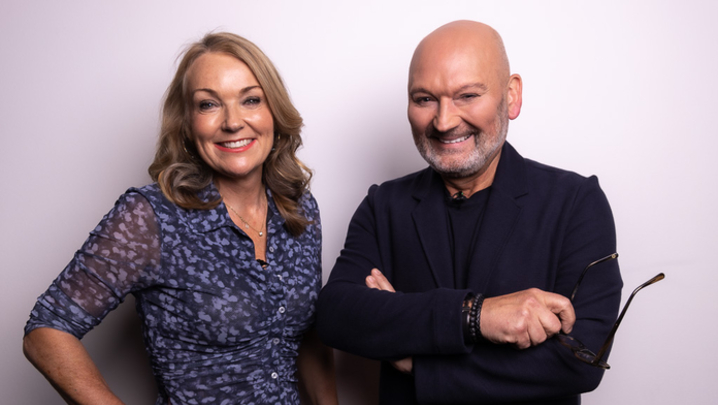Channel 5’s Ben Frow tells Steve Clarke why lockdown is tailor-made for the broadcaster
They say that good things come in threes. When Channel 5 won Channel of the Year at March’s RTS Programme Awards, beating Sky Atlantic and BBC Three, the accolade followed identical wins at February’s Broadcast Awards and the 2018 Edinburgh TV Awards.
“It was thrilling to win Channel of the Year,” says the station’s director of programmes, Ben Frow, looking dapper in a dark T-shirt. “We’ve won each one once; we’ve finally got them all. I wouldn’t actually enter another channel of the year [competition].
“It was very nice to get the recognition. I don’t want to become like Ant and Dec, and try to win it 30 years in a row. I’ve got enough pressure.”
Frow is speaking via Microsoft Teams from his kitchen table, his new workplace in leafy Clapham, south-west London. He may be in lockdown, but Frow is enjoying a high profile thanks to an interview he gave last month to Radio 4’s Media Show in which he declared that the station’s “scrappy” spirit was well suited to riding out the coronavirus storm.
“Content is critical and we are providing a real service to the country,” said Frow. “I would hate us to fall behind the SVoDs because we are unable to function.” That seems unlikely. As the smallest of the UK’s terrestrial broadcasters, Channel 5 consistently punches above its weight.
In the seven years that Frow has run Channel 5 he has transformed the station into an agile operator, weaning it off US acquisitions to become a service known for its no-frills, but engaging, factual shows – often hosted by A-list presenters.
History, travel, wildlife and an abundance of royal documentaries are the keys to Frow’s current success. The recent Anne: The Daughter Who Should Be Queen, made by ITN, won Channel 5 its biggest audience of the year as 1.7 million people tuned in on the night.
His defining shows have included The Yorkshire Vet, the Bafta-winning Cruising with Jane McDonald and, of course, Michael Palin’s standout North Korean odyssey. Other established BBC talent such as Jeremy Paxman and Jeremy Vine have become star names on 5’s menu; this month, we get a new, 10-part series The World’s Greatest Paintings with Andrew Marr.
Frow’s camp, no-nonsense style, avoidance of jargon and love of television (in his previous job at Channel 4, he ran features and was responsible for such hits as Jamie’s School Dinners and How Clean Is Your House?) have won him an army of admirers among independent producers.
‘There is a hunger for reassurance, security, nostalgia and hope’
Last autumn, as a reward for his achievements, the broadcaster’s US owner, Viacom, promoted Frow. As well as being responsible for Channel 5 and its portfolio of digital channels, he now oversees the UK versions of Comedy Central, MTV and the Paramount Network.
Alas, the national emergency means that, in common with ITV and Channel 4, budget cuts are being made – around 10%, according to recent reports.
“The ad market is down 50% year on year. That is catastrophic for commercial broadcasters. We are a commercial broadcaster. It would be naive to think it is going to bounce back in a V shape,” says Frow, who famously once rinsed Judy Finnigan’s tights when he worked as a dresser on This Morning.
He continues: “It would be irresponsible to think everything is going to go back to normal. I’m thinking much longer term. We may be able to work together in some form in the next few months but I have to prepare for a nine-month, year, two-year period, which, economically, is going to be very challenging for this country.”
Ambitious plans for more original UK commissions for Comedy Central, MTV and Paramount have been put on hold. So, too, have some of 5’s less cost-effective programmes that were earmarked for production earlier this year.
But, make no mistake, Frow sounds bullish when he weighs up the advantages Channel 5 has in the crisis. Working with a very small team (he employs just nine commissioners) clearly helps. “We don’t have departments. We are used to working with less money. We are essentially a factual channel. We don’t have big entertainment shows that require studio audiences. And, unlike the BBC and ITV, we have very little drama.”
In other words, existing on a tight budget (in the region of £140m prior to the cuts) and thinking laterally is “what we do anyway. But now it’s magnified and on a much bigger scale.”
Running such a trim ship allows locked-in Frow to speak to his team every day – helpful when maintaining morale. “I am very encouraged by the way our new shows are performing and holding our share,” he says. “I am proud of the team who have pulled together in difficult circumstances and are making Channel 5 a continued success story.”
For the first four weeks of lockdown, Channel 5 grew its audience share by 5%, up from 3.63% to 3.82%. Among hard-to-reach 16- to 34-year-olds, share has increased by 2%. The comparable figure for ABC1s was 5%.
As to what shows he is commissioning, he doesn’t want “programmes that are Covid-looking and which look like they’ve been filmed on Skype, but shows that we would have commissioned without the crisis”.
He adds: “One thing I am not doing is any Covid programming. We should be giving audiences the nice, varied and reassuring schedule that we’ve done up until now. That strategy has worked very well so far. For us, it is very much business as usual.... There is a hunger for reassurance, security, nostalgia and hope.
“I have looked at some of the entertainment shows being done using the Covid criteria and restrictions. Frankly, they don’t work for me. I’d rather not have them.”
Expect more fast-turnaround Saturday-night royal documentaries, including a fresh take on the story of Harry and Meghan. Remarkably, these films take only a week to make. “Often, on a Monday, after I’ve got the ratings, I’ll email ITN and give them another idea. If the viewers like them, we’ll give them more. When they don’t like them any more, we’ll stop doing them.”
Mindful that most of us are locked in, Channel 5’s pre-school strand, Milkshake!, has been expanded and Frow is bringing back NBC’s The Golden Girls as a daytime treat for older viewers.
He says: “People ignore daytime but, if you mess with daytime, you’re likely to lose a lot of viewers. That’s the foundation of your schedule.
“The one advantage that terrestrial TV has is that it gives you something new all the time,” Frow argues. “It is the same old things on Netflix because, once you’ve done Netflix, you’ve pretty much done it. I gave up actually trying to find anything I wanted to watch on Netflix.”
So what does he admire on rival outlets? HBO’s Succession, Channel 4’s The Windsors – which he watches on Netflix – and BBC One’s The Repair Shop. “I love the fact that The Repair Shop has become such a phenomenon. It was a show that was taken for granted and has hit the zeitgeist in terms of what is precious to you – emotions, family, relationships, and heritage. I am jealous of it, but, unlike some other people, I don’t want to copy it.”






